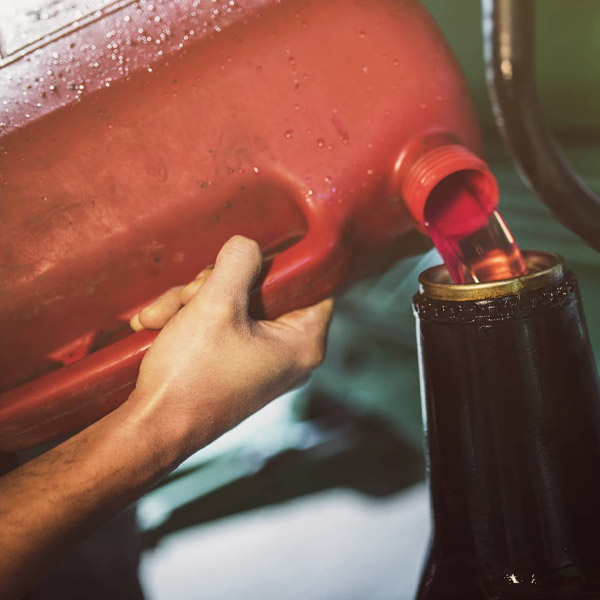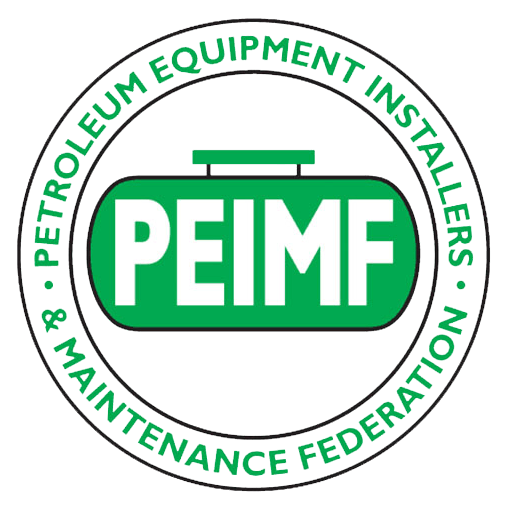Choosing Between Lubricating Oil and Grease
Grease is superior for optimal performance in machinery and specialised environments due to its thicker consistency and unique properties. Conversely, when greases are impractical, oil shines with its excellent cooling capabilities, making it an essential option for many applications.
Benefits of Lubricating Oils
- Uniform Composition: Synthetic lubricants are made from engineered chemical compounds derived from broken down and rebuilt petroleum molecules. This process results in a uniform molecular structure, ensuring consistent machinery lubrication, which reduces power consumption and enhances efficiency.
- Fewer Impurities: Mineral oils are derived from natural sources and contain chemical compounds like waxes, sulfur, nitrogen, and phosphorus. These compounds can compromise the oil’s performance and lifespan by causing oxidation, degradation, and higher evaporation rates, particularly at elevated temperatures. In contrast, synthetic lubricants are manufactured with fewer impurities, which gives them a notable advantage over mineral oils.
- Higher Viscosity Index: One big benefit of synthetic oil is its higher viscosity index. It can better handle temperature changes, allowing it to flow easily in cold temperatures and not become too thin in the heat. As a result, synthetic oil creates a thicker protective layer, offering better protection against wear and tear.
- Better Energy Efficiency: Synthetic oil offers better energy efficiency due to its higher traction coefficient, which allows engines to use less force or horsepower when moving heavy loads.
Benefits of Lubricating Grease
- Enhanced Leakage Prevention: Grease lubricants’ thick consistency allows them to cling effectively to worn seals and connectors, ensuring superior lubrication while minimising the risk of leaks.
- Ideal for Intermittent Use Machines: The grease remains on crucial components of machinery and other equipment that are frequently turned OFF and ON, preventing dry starts—a leading cause of wear and tear in these machines.
- Effective Contamination Defense: When strategically applied around seals and connectors, grease is a protective barrier, keeping out dirt and moisture that could compromise performance.
- No Need for a Circulating Lubrication System: Unlike oil, which relies on a complex refilling infrastructure, including pumps, filters, and pipes, grease remains in place for extended periods, streamlining maintenance.
- Reduced Lubricant Usage: Grease lubricants do not require a constant supply like their oil counterparts, meaning less waste and more efficiency in your operations.
When to Choose Grease?
Here are some applications where it’s better to use grease over oil:
- In areas where leakage and dripping occur.
- In areas where it’s challenging to circulate lubricant.
- When sealing is needed in high-contaminant environments (e.g., exposure to water and particles).
- For protection of metal surfaces from corrosion.
- To lubricate machines that operate intermittently.
- Ideal for sealed-for-life applications, including electric motors.
- Used to lubricate machines that are extensively worn.
- Where noise reduction is a priority.
When to Choose Oil?
- Oils effectively transfer heat to a larger body, making them useful as coolants and lubricants in high-heat applications.
- Oils are often preferred over greases in challenging applications.
- After cleaning, gun owners use oil because it spreads smoothly, penetrates well, and minimises mess.
Applications of Lubricants beyond Engines
Lubricants are substances that reduce friction between two surfaces to prevent wear and tear. They are often used in engines, such as cars, but their applications go far beyond just engines. Here are some other industries and areas where lubricants play a critical role.
Industrial Machinery
Industrial machinery, such as pumps, compressors, and turbines, requires adequate lubrication. Lubricants reduce friction between moving parts, aid heat dissipation, and ensure protection against corrosion. Specialised lubricants are used in industries where machines are exposed to extreme conditions, such as high temperatures or heavy loads, for optimal performance and longevity of equipment.
Aerospace
The aerospace industry is more dependent on lubricants to let aircraft components run smoothly, from engines to landing gears. Various critical parts depend on proper lubrication for effective functioning. Thus, aerospace lubricants must undergo rigorous safety testing while ensuring their ability to perform at high altitudes and temperatures.
Automobile Manufacturing
Lubricants are crucial in the manufacturing process of automobiles. They help move parts on assembly lines and prevent damage during production. Furthermore, specialised lubricants are used for metal-forming processes such as stamping.
Specialised Lubricants for Different Applications
Automotive Lubricants
- Engine Oil: This is used to lubricate and protect the moving parts of an engine, thus preventing friction and wear
- Transmission Fluid: This fluid ensures smooth gear shifts and protects against heat and wear in manual or automatic transmissions.
- Brake Fluid: It transfers force through the brake pedal to the brakes, prevents rust, and ensures good performance.
- Power Steering Fluid: Hydraulic fluid makes steering control more manageable and prevents damage to the power steering system.
Industrial Lubricants
- Grease: Thick lubricant used in heavy machinery, such as bearings, gears, and chains, to reduce friction
- Hydraulic Fluid: This fluid is used in hydraulic systems to transfer power, lubricate, seal components, and provide corrosion protection.
- Compressor Oil: Used in air compressors for regulating temperature and reducing friction for industrial applications.
- Cutting Fluid: Lowers heat and friction in metalworking tasks like drilling, milling, and grinding.
Marine Lubricants
- Marine Engine Oil: Specifically designed for marine engines to provide excellent lubrication and protect against water contamination
- Gear Oil: Used in marine gearboxes to reduce friction, prevent wear, and maintain performance under extreme loads
- Stern Tube Oil: It protects special lubes designed to meet industrial needs. For example, food-grade lubes meet the needs of processors in hygienic processing plants. They resist contamination while still ensuring better performance.
Agricultural Lubricants
- Agricultural Engine Oil: Keeps farm equipment, like tractors and harvesters, running well.
- Gear and Transmission Oils: Essential for agricultural machines to support heavy loads for a long time.
- Crop Protection Oils: An essential component of agricultural activities, enhancing yields that sustainably feed the world.
Food Grade Lubricants
- H1 Lubricants: These are safe to use in places where they might accidentally touch food, like conveyor belts and ovens. Their ingredients are approved by 21 CFR 178.3750.
- H2 Lubricants: These are used where there is no chance of touching food and they do not have heavy metals like lead or mercury.
- H3 Lubricants: These are easy to wash off and usually edible oils that help prevent rust on food-contact equipment, such as hooks and trolleys.
Hydraulic Oil
- Mineral-Based: Derived from crude oil and used in aircraft hydraulics.
- Water-Based: This mixture of water and other substances, such as glycols or esters, cools well and is suitable for high-temperature systems. However, it shouldn’t be used in systems with parts that can rust or corrode.
- Multi-Grade Hydraulic Oil: Multi-grade hydraulic oils are efficient fluids that maintain viscosity in extreme conditions and may include dyes for easy leak detection.
Conclusion
As industries evolve, the future of lubricants seems bright. The emphasis is on technology and sustainability. Biodegradable and Eco-friendly options are getting more popular as people care more about the environment. Lubricants with sensors that can monitor real-time performance will soon be possible, further improving efficiency. The continuous evolution ensures that lubricants keep spinning smoothly while significantly impacting our world for years. Whatever makes the world go round, these unsung heroes will always play a critical role.















